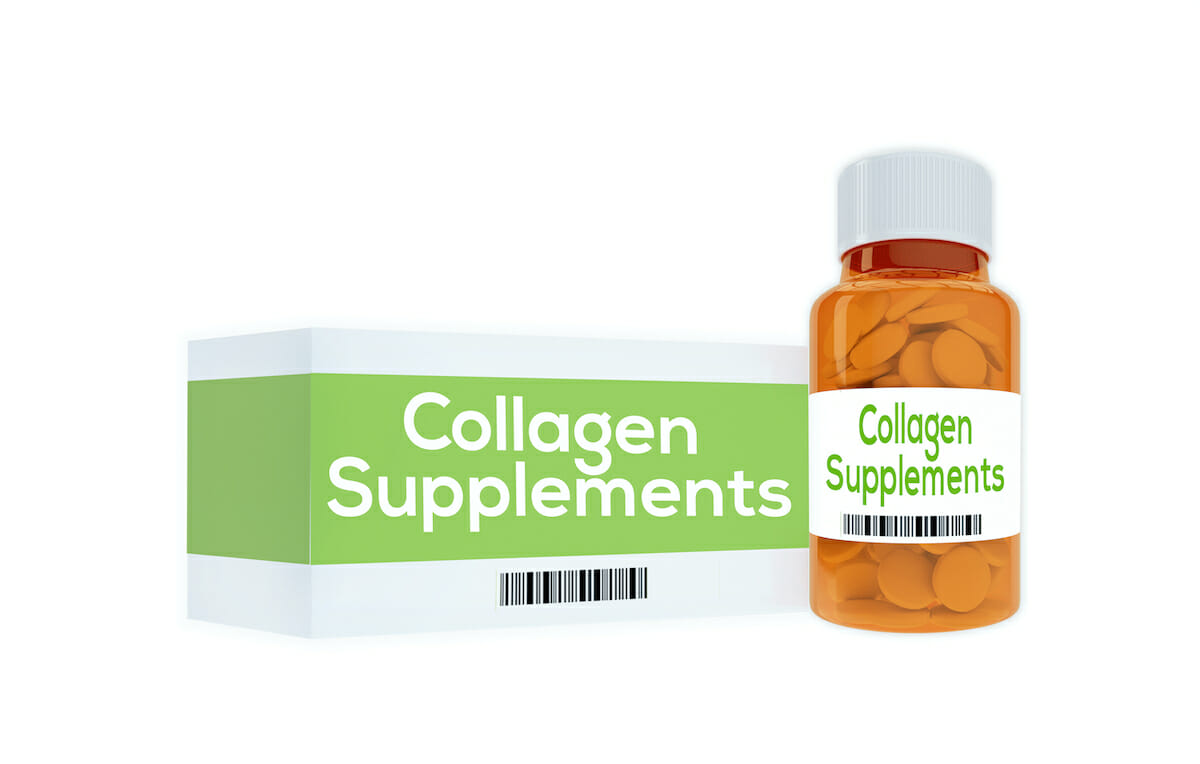No one likes the wrinkled skin, achy joints and decreased muscle mass that can come with aging. But all these issues have one thing in common—they can result from reduced collagen in our body.
Collagen is the body’s most abundant protein and building block, accounting for one-third of our body’s protein. It helps us form connective tissue—a vital component of our skin, bones, muscles, tendons, and cartilage. If our body doesn’t make enough collagen, these body parts lose the elasticity and strength they need to function.
The good news is that supplements can support our body’s collagen production. But as with any supplement, it’s important to have all the facts before changing your daily regimen.
Here’s what you need to know:
How collagen production decreases
Collagen levels naturally decrease with age. The body’s collagen production slows down over time, decreasing by 1% a year beginning in early adulthood. And according to the American Academy of Dermatology, women lose 30% of their skin’s collagen in the five years following menopause.
But certain lifestyle factors can speed up the level of decline. Collagen production may be affected by:
- Excessive alcohol use
- Exposure to environmental pollution
- Insufficient sleep
- Lack of exercise
- Nutrient deficiencies
- Smoking
- Sun exposure
Health effects of low collagen
When collagen breaks down faster than the body takes it in or makes more, it can have detrimental effects. Some of the effects are visible, while others happen beneath the surface.
Low collagen is a significant contributor to aging skin. Collagen makes up 70% to 80% of skin tissue and provides skin’s structural integrity. As it decreases, skin can look wrinkled and crepey.
On the inside, muscles can weaken without enough collagen, while tendons and ligaments can lose their strength and stability. Collagen also makes up 60% of the body’s cartilage, which cushions bones from the effects of high-impact movements. When collagen deteriorates, joint pain and osteoarthritis can result.
How to increase collagen production in your body
There are ways to help your body increase collagen production while supporting the collagen your body already has. You can eat foods high in collagen, and you may want to consider taking collagen supplements.
Collagen in food
Eating foods high in collagen is a natural way to boost collagen intake. Ideal choices include high-protein foods that have a lot of connective tissue, such as:
- Beef, especially tough cuts such as brisket and pot roast
- Bone broth made from chicken, beef, or fish
- Chicken and turkey, which provide collagen in skin and connective tissue
- Fish and shellfish, which contain the most collagen in their bones and scales
You can also eat foods that support your body’s production of collagen. Opt for a diet rich in:
- Copper, found in beans, chickpeas, and cashews
- Protein, such as egg whites and beans
- Vitamin C, abundant in berries, citrus fruits, leafy greens, and bell peppers
- Zinc, found in nuts and seeds
Collagen peptides supplements
Collagen supplements also are a reliable resource — and there is no conclusive research proving that collagen from food is better than collagen provided by supplements. But to ensure your body gets all the collagen it can from supplements, opt for collagen peptides or hydrolyzed collagen. This alternative includes fragments of animal-derived collagen. Breaking down collagen makes it easier for the body to absorb in its entirety than collagen taken as a complete protein.
Collagen supplements come in pill, powder, or liquid form. Topical creams and lotions may also contain collagen, but the external application is not as effective as ingested collagen supplements.
Add powdered collagen to smoothies, coffee, and soups. Research shows that taking 2.5 to 15 grams daily of hydrolyzed collagen is safe. A smaller dose benefits your joints and skin, while a larger amount may help with body composition and muscle mass.
Things to consider when supplementing with collagen or collagen peptides
The U.S. Food and Drug Administration doesn’t regulate or review supplements, so talk to your primary care physician before adding collagen supplements to your daily routine. While there are no known side effects, more research on collagen supplements is needed.
Remember, collagen supplements should not be a substitute for changing unhealthy behaviors, such as smoking, forgoing sun protection, or not getting enough sleep. Making positive lifestyle changes can significantly impact your body’s collagen production.
To learn whether you should consider collagen supplements, reach out to your primary care physician.
Source: https://connect.uclahealth.org/2022/09/30/should-you-take-collagen-supplements/











